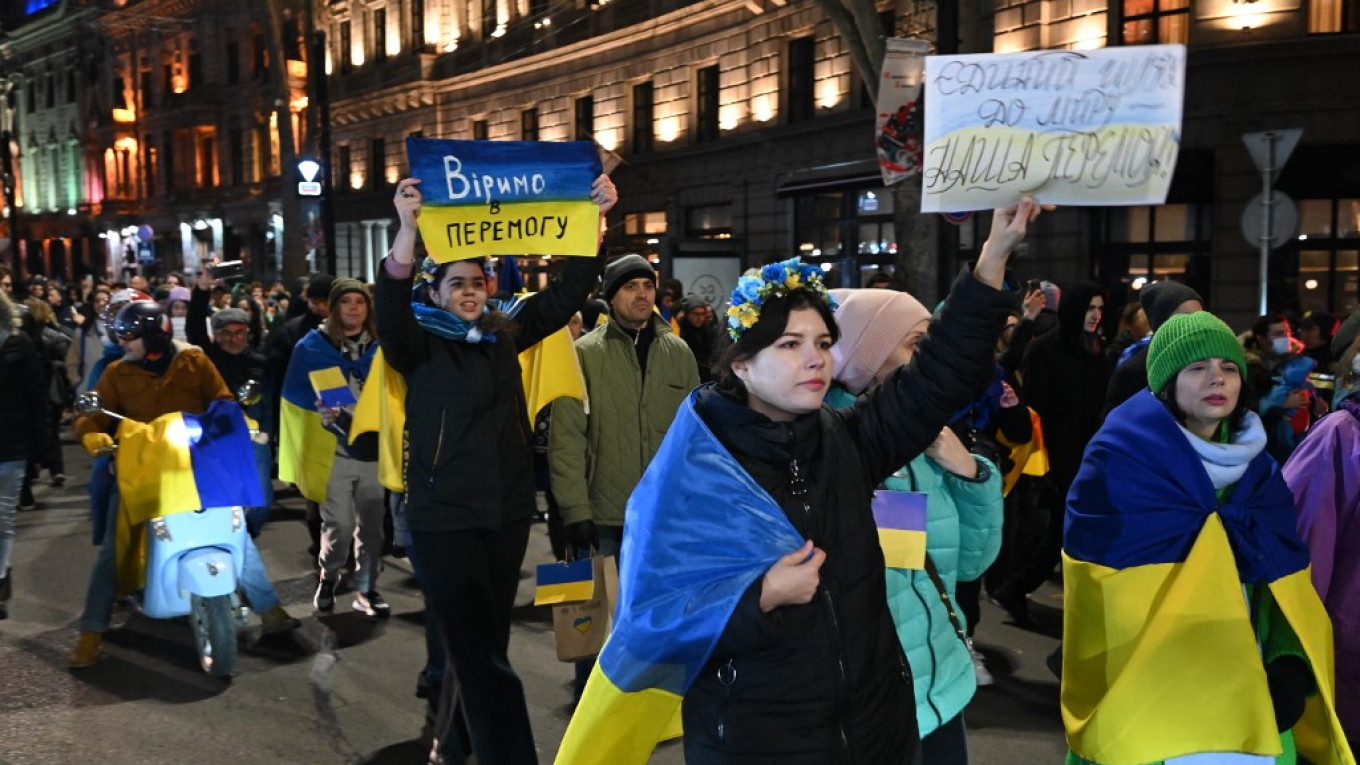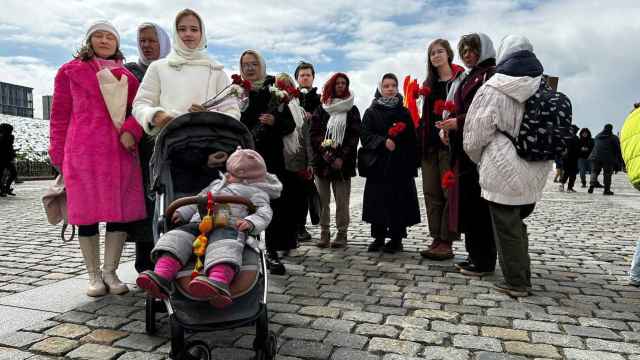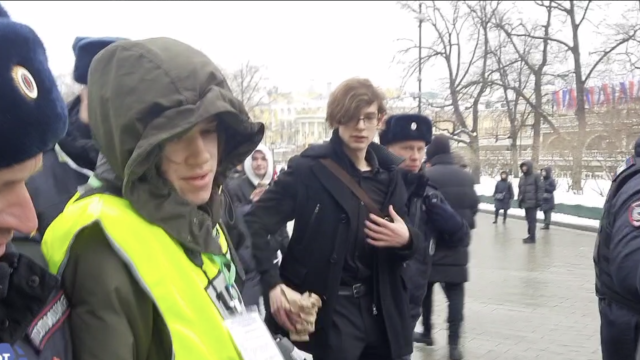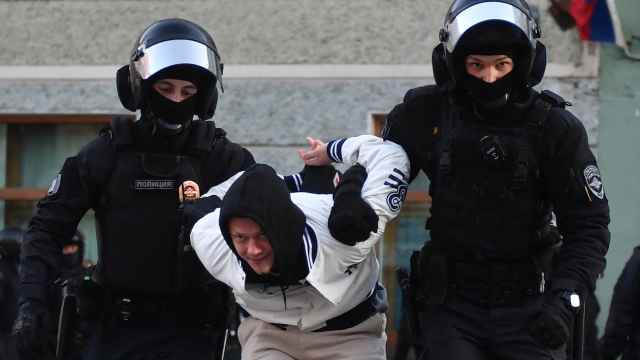TBILISI, Georgia — Thousands of people took to the streets of the Georgian capital on Friday in a show of support for Ukraine, one year after Russia launched its invasion of the country.
Large crowds moved down Tbilisi’s main thoroughfare Rustaveli Avenue, carrying Ukrainian flags, pro-Ukrainian banners and anti-Putin signs.
Some 30,000 demonstrators gathered outside parliament for a rally held in solidarity with Ukraine and in support of Georgia's EU membership, according to AFP.
Crowds chanted "Glory to Ukraine!" after Georgian and Ukrainian anthems were sung at the demonstration.
"We, citizens of Georgia, political parties, civil society and Ukrainians living here unite today in solidarity with the heroic Ukrainian people," the organizers, which included several opposition parties and Georgia-based Ukrainian activists, said in a statement.
Among those in attendance were some of the tens of thousands of Russians who have fled to this South Caucasus nation in the past year in opposition to the invasion or out of fear of being sent to the frontlines.
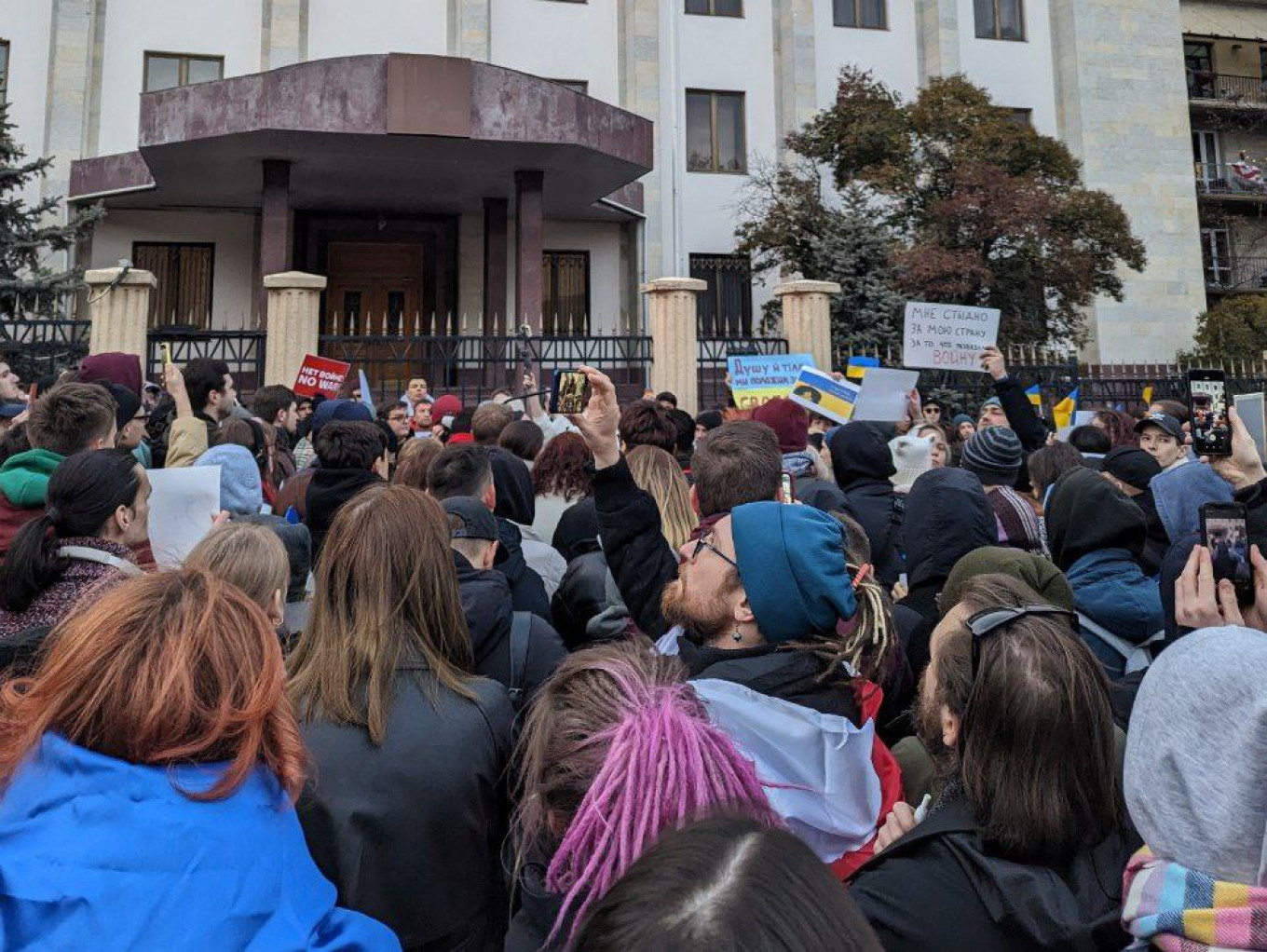
For Georgians, the Russian invasion of Ukraine — which like Georgia was part of the Soviet Union — has reignited painful memories of their country’s 2008 war with Russia.
“Ukrainians are fighting for us too, for our freedom. We hope that Ukraine will win soon. The senseless Russian war will end and we will live in peace,” said a 46-year-old Georgian woman who declined to give her name.
At a separate rally of anti-war Russians outside the former Russian embassy, protesters could be seen holding signs reading “12 months of Russian terror in Ukraine,” “No to war” and “Putin is not the motherland.”
“A year ago, the old world ceased to exist. Everything that you believed in collapsed,” said Serafima, who came to Tbilisi from Russia’s third-largest city Novosibirsk.
“I associate myself with Russia and will always do so because it is my homeland. But I can't accept people who support the war. It is easier for me to accept a person’s death than his support for the war,” Serafima, 31, told The Moscow Times.
Ilya, 34, said he had been afraid to come to the embassy protest, still wary of the crackdown on dissent in his home country.
“I had the fear that some correspondents from Russian state channels would be here, and that we would appear in their reports,” he said. “But that's my paranoia. It’s a reflex of fear that stayed with me after the rallies that I went to in Moscow.”
Friday’s protests in Tbilisi were among the dozens of events worldwide marking the invasion’s one-year anniversary.
Protests and memorials took place on the streets of New York and Sydney as well as European capitals including London, Amsterdam, Berlin, Helsinki, Riga, Vilnius and Tallinn.
Demonstrations were also seen in Istanbul, Tel Aviv and Yerevan, cities that have been major hubs for Russians fleeing political persecution and mobilization over the past year.
In Central Asia, anti-war activists in Kyrgyzstan’s capital Bishkek held a small event commemorating the start of the war attended by roughly a dozen Russian migrants. Five of the attendees were detained for hours before the event while laying flowers at a peace monument sculpted by a Ukrainian artist.
Back in Tbilisi, one of the thousands rallying for Ukraine was Anastasia, 29, who moved to Moscow from eastern Ukraine’s Luhansk region in 2013 but fled to Georgia upon Russia’s full-scale invasion.
“This day is a day of sorrow for me,” she told The Moscow Times. “I want the war to end, and for people to remember this day, so that war does not happen again.”
Referring to the regions of eastern Ukraine where Russia is currently waging brutal fighting for control, she said: “I believe that Luhansk and Donetsk and all the other regions they are trying to occupy will be Ukrainian and will be free.”
"I hope that I will return to Ukraine someday,” she said. “But I don’t believe that I will be able to do this in the next couple of years.”
AFP contributed reporting.
A Message from The Moscow Times:
Dear readers,
We are facing unprecedented challenges. Russia's Prosecutor General's Office has designated The Moscow Times as an "undesirable" organization, criminalizing our work and putting our staff at risk of prosecution. This follows our earlier unjust labeling as a "foreign agent."
These actions are direct attempts to silence independent journalism in Russia. The authorities claim our work "discredits the decisions of the Russian leadership." We see things differently: we strive to provide accurate, unbiased reporting on Russia.
We, the journalists of The Moscow Times, refuse to be silenced. But to continue our work, we need your help.
Your support, no matter how small, makes a world of difference. If you can, please support us monthly starting from just $2. It's quick to set up, and every contribution makes a significant impact.
By supporting The Moscow Times, you're defending open, independent journalism in the face of repression. Thank you for standing with us.
Remind me later.



